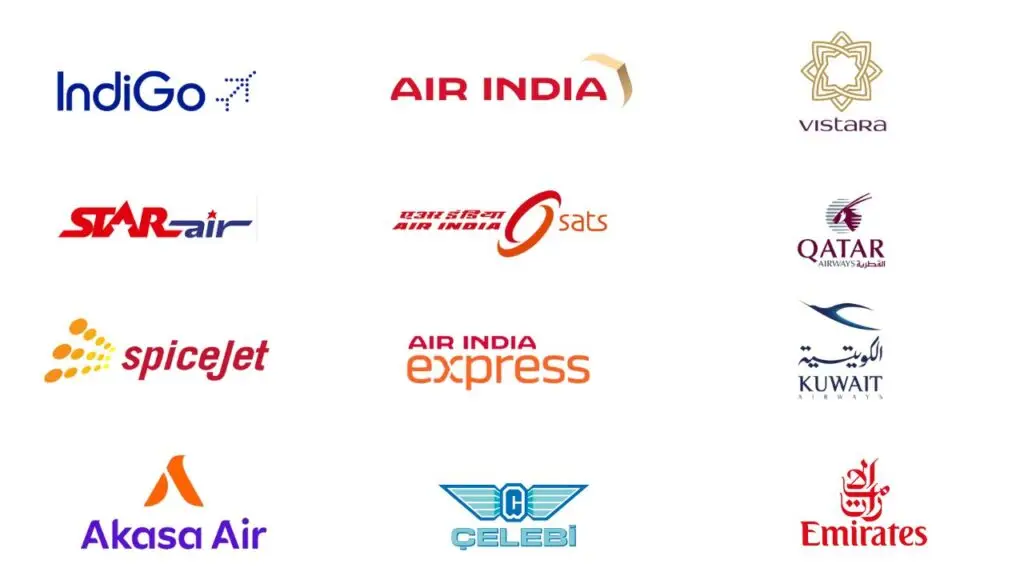Certificate in
Airline Interview Preparation
FREE TRAINING

Duration
5 Days
2 hours a day
Eligibility
Graduate / 12th Pass
Age 17 – 25
Methodology
Online Classes
Enagage Real Time
Certification
E- Certificate
Nationally Recognised
About the Course
This Free Aviation Course for Airline Preparation Certification is a unique offering designed for individuals aspiring to start their careers in the aviation industry. Through this free cabin crew course, participants will delve into the essentials of becoming a cabin crew member or an efficient airport ground staff.
Spanning five days, our Airline Interview Preparation covers the foundation of aviation knowledge, skills necessary for acing airline interviews, and personal grooming tips, ensuring a well-rounded preparation for your aviation career.
What You Will Learn
Click on each section to expand
+ Day 1: Introduction to the Aviation Industry
Discover the Benefits of a Career in Aviation: Understand the dynamic and rewarding nature of aviation careers, exploring various roles and growth opportunities within the industry.
Learn About Key Aviation Authorities and Their Roles: Get familiar with global and regional aviation regulatory bodies like the FAA, ICAO, and DGCA, and understand their impact on airline operations and safety standards.
Decode Airline IATA Codes: Gain knowledge of the International Air Transport Association (IATA) codes, essential for identifying airlines and airports worldwide, facilitating smooth travel and logistics operations.
Gain Insights into the Interview Process: Equip yourself with an understanding of the cabin crew selection process, from initial application to final interview, including the types of questions asked and how to prepare effectively.
+ Day 2: Understanding Aircraft and Flight Phases
Explore Airplane Components and Flight Phases: Dive into the anatomy of an aircraft, learning about critical components like the fuselage, wings, and engine, and understand the sequence of a flight from takeoff to landing.
Understand the Cabin Crew’s Role in Safety: Learn about the cabin crew’s responsibilities in ensuring passenger safety, including emergency procedures, safety equipment usage, and inflight security measures.
+ Day 3: Enhancing English Communication Skills
Dive into Aviation Phonetics and Grammar: Master aviation-specific phonetics for clear communication and improve your English grammar for professional interactions.
Learn About English Testing in Airline Interviews: Prepare for English proficiency tests commonly conducted by airlines, focusing on verbal fluency, comprehension, and technical vocabulary relevant to aviation.
+ Day 4: Personal Grooming and Appearance
Master the Art of Personal Grooming: Learn the importance of personal grooming standards in the aviation industry, including attire, hygiene, and makeup/hair guidelines, to ensure a professional appearance that meets airline expectations.
+ Day 5: Mastering Resume Writing and Interview Techniques
Craft a Compelling Resume: Receive guidance on creating a standout resume that highlights your skills, experiences, and suitability for a cabin crew role, emphasizing the importance of clarity, conciseness, and relevance.
Learn Interview Techniques: Develop your interview skills through practical tips on body language, answering techniques, and how to effectively communicate your strengths and experiences, ensuring you leave a positive impression on the selection panel.
Each day of this course is designed to build upon the previous, ensuring a comprehensive understanding of the aviation industry and preparing you for a successful career as a cabin crew member or in airport ground staff roles. By the end of this free aviation course, you’ll be equipped with the knowledge, skills, and confidence needed to embark on your aviation career journey.
Other Courses
Diploma in Aviation Management
- Duration – 3 Months / 6 Months
- Eligibility – 12th pass or Appearing
- Classes -Offline
- Placement Support – Life Time
- Fees EMI – Available
- Skill India Certification
Diploma in Aviation Management (Online)
- Duration – 3 Months / 6 Months
- Eligibility – 12th pass or Appearing
- Classes – Online Live
- Placement Support – Life Time
- Fees EMI – Available
- Skill India Certification
Our Students get Hired In

FAQ's
+ Is the Airline Interview Preparation course really free?
Absolutely. We are committed to making quality aviation education accessible to all, and this course is offered entirely free of charge. Aimed at guiding candidates towards fulfilling careers in the aviation industry, this program underscores our dedication to nurturing talent. By providing this free Airline Interview Preparation, we hope to remove financial barriers, opening up opportunities for many to pursue their dreams in the aviation field.
+ Who is this course for?
The Airline Interview Preparation course is specially designed for ambitious individuals eager to embark on a career within the aviation industry. Ideal for those aspiring to roles such as cabin crew, airport ground staff, or any position requiring a solid foundation in aviation practices, our free cabin crew course serves as an excellent entry point. It’s a perfect fit for anyone looking to join airlines or airport operations, providing in-depth insights into the sector.
+ What is the duration of the Airline Interview Preparation course?
Spanning five comprehensive days, this aviation training program is segmented into detailed daily modules. Each day is dedicated to covering essential themes and skills, from understanding the aviation industry’s basics to mastering the interview process. This structure ensures that participants receive a holistic education, making it a standout choice among free aviation courses for career preparation.
+Will I receive a certificate upon completing this Airline Interview Preparation program?
Yes, upon completing this aviation course, participants will be awarded an Airline Preparation Certification. This certificate not only signifies their dedication and knowledge gained throughout the course but also enhances their credentials, making them more attractive candidates for various roles in the aviation sector, including cabin crew and airport ground staff positions.
+ How does this course help in airline interview preparation?
Our course is meticulously crafted to cover all aspects vital for succeeding in airline interviews. From in-depth knowledge of the aviation industry, including aircraft operation and safety protocols, to soft skills like English communication, personal grooming, and resume writing, this free aviation training equips candidates with confidence and competence. We focus on real-world scenarios and practical tips to navigate the selection process successfully, positioning this program as a premier cabin crew training course.
